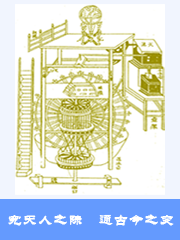- Science and the State in 20th Century China:How Should We Understand Modernization?
Topic: Science and the State in 20th Century China:
How Should We Understand Modernization?
Lecturer: Prof. Richard P. Suttmeier
Abstract:Two defining features of modernization, as characteristically understood, are the rise of the modern nation-state, and the rise of modern science and technology. This talk will explore some of the relationships between “science and state” as they have developed in modern China and the West. These relationships are understood in terms of state policy interventions to promote scientific and technological development and in terms of the underlying norms which define science-society relationships. The discussion will explore the ways in which policy effectiveness for the promotion of science and technology is related to these underlying norms.
Time: November 15, 2013(Friday) 09:30-11:30
Address: Room 209, IHNS

Introduction of the lecturer:
Richard P. Suttmeier is a Professor of Political Science, Emeritus, at the University of Oregon. He has written widely on science and technology development issues in China. His most recent publications include: China’s IP Transition: Rethinking Intellectual Property Rights in a Rising China (with Yao Xiangkui). National Bureau of Asian Research. July, 2011; “From Cold War Science Diplomacy to Partnering in a Networked World: 30 Years of Sino-US Relations in Science and Technology”, Journal of Science and Technology Policy in China, Vol. 1, No. 1, 2010; “‘The Sixth Modernization?’ China, Safety, and the Management of Risks.” Asia Policy 6 (June, 2008); “State, Self-Organization, and Identity in the Building of Sino-US Cooperation in Science and Technology.” Asian Perspective 32, 1, 2008; and Standards, Stakeholders, and Innovation: China’s Evolving Role in the Global Knowledge Economy. (with Scott Kennedy and Jun Su). National Bureau of Asian Research. September, 2008. Dr. Suttmeier has served as Senior Analyst, Office of Technology Assessment and Director of the Beijing Office, National Academy of Sciences/Committee on Scholarly Communication with the People's Republic of China, and as a consultant to the World Bank, the UNDP, the Chinese Ministry of Science and Technology, and to the US government. During 2010-2011, he was a Senior Visiting Scholar at the Institute of Policy and Management of the Chinese Academy of Sciences. Copies of recent papers and his full curriculum vitae are available at http://china-us.uoregon.edu/papers.php.




